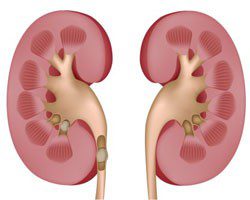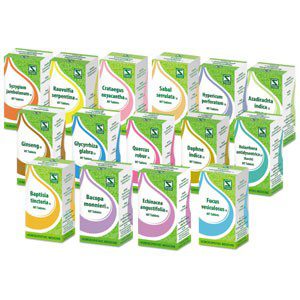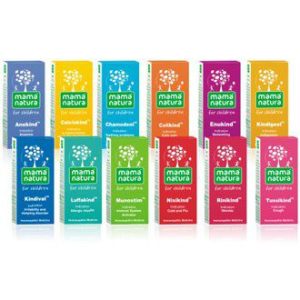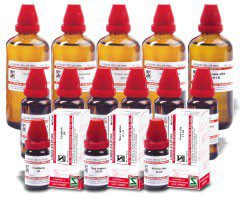
Don’t Ignore These 5 Early Warning Signs of Typhoid Fever
- Dr. Aditi Sharma
- No Comments

Typhoid fever or enteric fever is a type of fever that is caused by bacterial infection. Salmonella typhi bacteria is a causative organism of typhoid fever. Typhoid fever can be a serious threat to health, mainly for children in third-world countries where it is prevalent.
Table of Contents
ToggleWHAT ARE THE SIGNS AND SYMPTOMS OF TYPHOID FEVER?
Symptoms of typhoid fever develop gradually. It may take 1 to 3 weeks for the symptoms to show up after exposure to Salmonella bacteria. Early and accurate diagnosis is crucial for the effective treatment of typhoid fever.
5 EARLY WARNING SIGNS OF TYPHOID FEVER
- Low-grade fever that rises throughout the day and may reach as high as 104 degrees Fahrenheit. This may be accompanied by chills.
- Aches such as muscle aches, headaches, weakness, and easy fatigue
- Symptoms suggestive of gastrointestinal system involvement such as stomach pain with constipation or loose motions, loss of appetite, nausea, and vomiting.
- Faint pink or rose spot rashes commonly on the stomach or chest
- Cough
Later illness appears a few weeks after the onset of the disease. In later stages, more grave problems appear in the intestines. It results in signs and symptoms such as: –
- Enormously swollen belly with pain
- Intestinal bleeding and perforation
- If the infection spreads from the gut to the whole body then sepsis occurs.
Other life-threatening complications are seen in very serious cases such as: –
- Psychiatric problems such as confusion of mind in patients with an inability to pay attention or react to people and things around them.
- Swelling or bursting of the gallbladder.
- Swelling around brain
- Respiratory issues such as pneumonia or bronchitis
- Inflammation of heart
- Inflammation of bone
- Kidney failure
- Miscarriage in Pregnant Females
In some cases, signs and symptoms tend to recur even weeks after the fever has subsided.
Also Read 9 Helpful Tips To Prevent Dengue Fever
WHAT CAUSES TYPHOID FEVER?
Typhoid is caused by a strain of bacteria known as Salmonella enterica, serotype typhi. It mainly spreads when an infected person after passing stool or urine does not wash hands carefully and thus passes the bacteria to other people and objects.
This infection can spread similarly by typhoid carriers. These are the people who recover from the fever after antibiotic treatment but continue to have the bacteria thriving in their bodies. They thus continue to shed bacteria in their feces and spread it.
Other ways in which one can contract typhoid fever include: –
- Consuming contaminated food and water.
- Washing eatables in the contaminated water supply.
- Consuming contaminated dairy products.
- Consuming seafood derived from contaminated water sources.
- Consuming raw vegetables that have been fertlised with contaminated human waste.
- Having oral or anal sex with typhoid carriers.
HOW CAN TYPHOID FEVER BE PREVENTED?
If one lives or travels to a place where typhoid is common, then one can get vaccinated against typhoid fever to prevent the risk of typhoid fever. However, the effectiveness of these vaccines goes down with time and then the person needs to get revaccinated.
To avoid getting the infection one should observe safe food handling practices such as: –
- Do not cook food if unwell.
- Wash hands with water and soap after going to the washroom.
- Wash hands with water and soap before preparing food.
- Wash utensils and surfaces for cooking and eating food thoroughly.
- Eat well-cooked or packaged food especially if one is unsure about the safety of the food to be consumed.
- Do not drink or use untreated water for drinking or cooking food. If unsure about the safety of the water it is advisable to use bottled water to cook or drink.
WHAT ARE THE DIFFERENT DIAGNOSTIC TOOLS FOR TYPHOID FEVER?
These are
1. Blood Tests such as
- Blood Culture
- Complete Blood Count (CBC)
2. Stool and Urine Tests
3. Bone Marrow Culture
4. Widal Test
5. Polymerase Chain Reaction (PCR)
WHAT IS THE ROLE OF HOMOEOPATHY IN THE TREATMENT OF TYPHOID FEVER?
Homoeopathy has a significant role to play in the treatment of typhoid fever. In the conventional system of medicines strong antibiotics are used to treat typhoid fever which can cause many side effects. Also at times, there is the presence of antibiotic-resistant strains of bacteria rendering traditional antibiotics ineffective. Time and again homeopathy has proved to be efficacious and at the same time safe treatment modality for typhoid fever. Well-selected constitutional medicine even helps to increase the overall immunity of the organism and prevent the recurrence of such infections.
The best homoeopathic medicine in the treatment of typhoid fever is the one that is the most similar to the manifestation of the disease in the patient. For this, a trained homeopathic physician tries to elicit the symptoms from both the physical as well as mental sphere of the patient.
Common homeopathic medicines for the treatment of typhoid fever are: –
- Arsenicum album– It is indicated when the patient has severe diarrhea, is very weak, restless, anxious, and thirsty for small sips of water.
- Baptisia tinctoria– Recommended for early stages of typhoid, especially when the patient feels dull, tired, and weak, with sore muscles and a tendency to sleep a lot.
- Rhus toxicodendron– It is indicated when with fever there is restlessness, body aches, and improvement from motion.
CONCLUSION
Typhoid is a potential life threatening bacterial infectious disease that is prevalent in third-world countries. It is caused by the bacteria Salmonella typhi. If not timely detected and treated it can be life threatening.
Early warning signs of typhoid are low-grade fever that rises throughout the day and may reach as high as 104 degrees Fahrenheit, chills, aches such as muscle aches, headache, weakness and easy fatigue, cough, and Faint pink or rose spot rashes commonly on the stomach or chest and symptoms suggestive of gastro-intestinal system involvement such as Stomach pain with constipation or loose motions, loss of appetite, nausea and vomiting.
It mainly spreads by consuming contaminated food and water. To avoid getting the infection one should observe safe food handling practices such as washing hands with water and soap after going to the washroom and before preparing food and using clean water for drinking and cooking food.
If typhoid fever is suspected, it is important to seek medical attention promptly for proper testing and treatment.
Homeopathy has a significant role to play in the safe and effective treatment of typhoid fever. Homeopathic medicine helps to treat the current infection and prevent the recurrence of typhoid.
It is recommended to refer to a trained homeopathic physician for medicine rather than self-drugging at home.





























